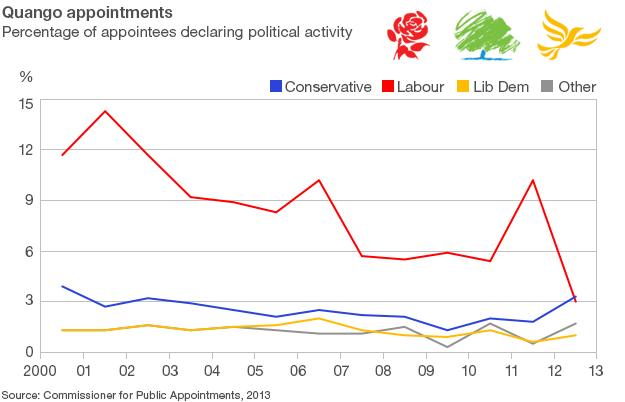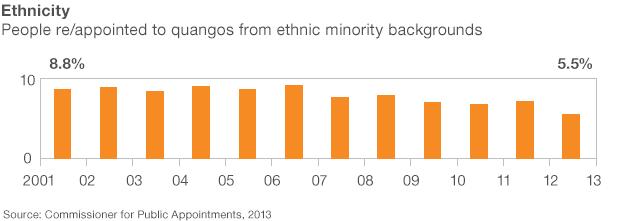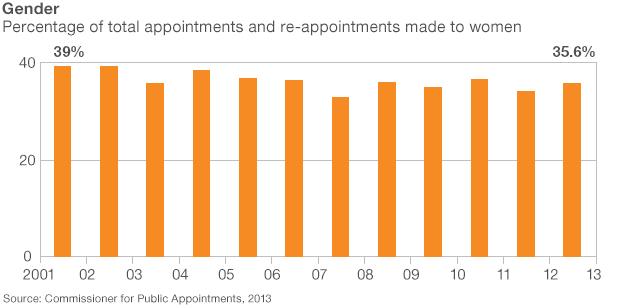In graphics: The politics of quangos
- Published
A row over the replacement of Ofsted's chair Baroness Sally Morgan has focused attention on the political interests of quango members.
Education Secretary Michael Gove decided not to re-appoint Baroness Morgan, who is a Labour peer, saying he wanted to "refresh" the leadership of the schools watchdog.
Critics, including Labour and the Liberal Democrats, have suggested that the move is politically motivated.
Mr Gove has denied this and said the coalition government picked the best person for a job, rather than basing decisions on the person's political views.
The Commissioner for Public Appointments (CPA), external records "declared political activity" for newly appointed and re-appointed quango members.
The figures show that over the last decade an overwhelming majority of those who declared any political activity did so for the Labour Party, although numbers have fallen sharply since the beginning of 2012.

Current data shows that only 9% of all appointees expressed any political activity, with 3.3% doing so in relation to the Conservative Party, 3% for Labour, 1% for the Liberal Democrats and 1.7% for other parties.
However, the raw numbers show that the majority of all appointees in 2012-13 declared no political activity at all, continuing a general trend of decline in declared political activity since 2001-02.

The data, released in the CPA's Annual Survey of Ministerial Appointments and Reappointments for 2013, also shows a decline in quango members from ethnic minority backgrounds since 2001-02.

From 2009-10 onwards, the percentage of ethnic minority appointments is calculated as a proportion of re/appointments made where ethnic background is known. In earlier years, percentages are for re/appointments made to people from ethnic minority backgrounds against a total of all re/appointments.


The data also shows a small decline in the numbers of women appointed or re-appointed since 2001-02.